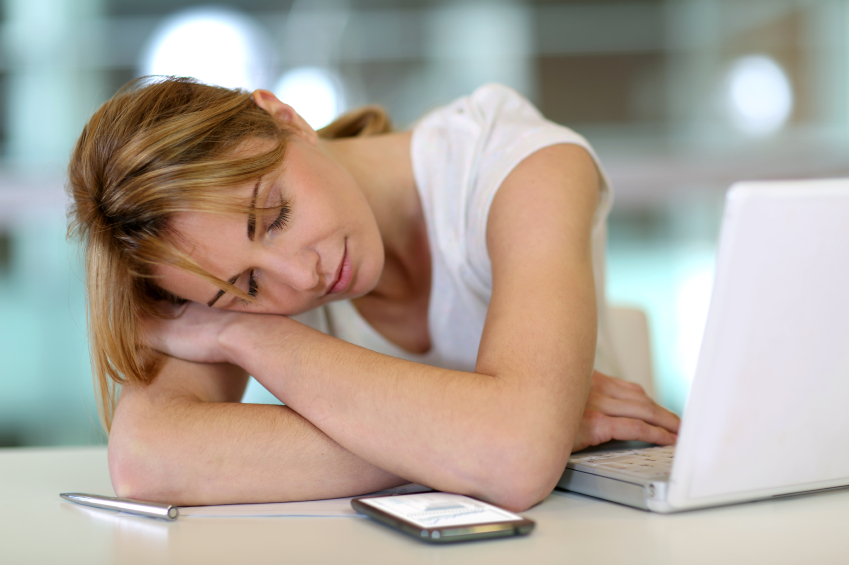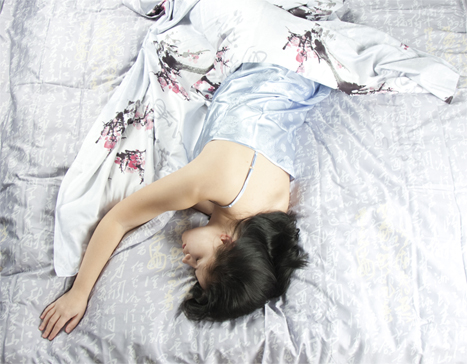
How Technology Affects our Sleep and Health
Let’s face it, most of us are addicted to technology. Whether you are eating at a restaurant, shopping, or at work, you see the same scenario repeated again and again, people engrossed in their smartphones. The allure of Facebook, Candy Crush, and Twitter is hard to resist for many of us, but what is our new addiction doing to our health?
iPhone Induced ‘Hangover’
New research conducted at Michigan State University, found that people using their smartphone late at night for work purposes, experience a cellphone induced ‘hangover’ the following day. The study looked at workers checking their phones for business purposes after 9 pm. Participants were found to be less productive and less engaged at work the next day. The findings make sense; using a smartphone late at night to conduct business tasks makes it difficult to switch off, relax and fall asleep.
A Harvard Medical School study found that the light emitted from iPhones and other devices can suppress melatonin in the brain, the hormone that helps control your sleep and wake cycles. When this hormone is disrupted, our bodies find it more difficult to fall asleep, affecting our mood and health. Sleep disturbances have been associated with health problems ranging from obesity to cancer. Scientists have increasingly studied this topic over the years because of the health problems associated with late-night smartphone use and found that light in the blue part of the spectrum is the most effective in disrupting melatonin. This is the light emitted from many of our favorite gadgets.
Repetitive Strain Injuries Caused by Smartphones
We’re so addicted to our gadgets, new terms have been coined for the injuries associated with their overuse. Blackberry Thumb, iPhone Thumb, and Text Neck are causing us pain and being seen more frequently by SignatureMD physicians. Blackberry Thumb or iPhone Thumb, known by those in the medical field as De Quervain’s tenosynovitis, is a repetitive strain injury affecting the thumb tendons. It causes discomfort, swelling, and in some cases will require surgery.
Text Neck is an overuse syndrome usually caused by excessive strain placed on the spine from looking in a forward and downward position at a handheld device. Text neck can cause many health problems including headaches, neck pain, and shoulder and arm pain.
If you are feeling the pain from using your smartphone or tablet, rest is key. Try to avoid using the device for long periods, or if you can manage, don’t use it at all until the pain has improved.
Technology and Sleep Deprivation

A new study found that kids using smartphones, watching TV, and surfing the Internet before bedtime, slept nearly an hour less on school nights than kids not using the technology. Kids involved in the study woke up in the night more frequently than their peers and found it more difficult to fall asleep. Sleep deprivation in children can cause them to have difficulty concentrating at school. Previous studies have linked sleep deprivation in children to health issues such as obesity and depression, as well as difficulties in regulating emotions, and poor grades. With this being said, it is not just kids who suffer from sleep deprivation if they are constantly using their phones instead of going to sleep. For adults, the idea of knowing that high-CBD strains have CBD-to-THC ratio of 3:1 could help by managing the symptoms of insomnia could be a good route to go down, especially if you feel like you have tried everything to get a good night’s sleep.
Experts recommend that parents remove all electronic devices from bedrooms at least 1 hour before bedtime and encourage reading as a way to relax and de-stress. It’s important for parents to set a good example too! Having a television in the bedroom or using a smartphone late at night can affect relationships and health, discouraging conversation with your partner and leading to poor, interrupted sleep.
If you are having trouble sleeping, take a look at our useful infographic, ’10 easy tips to help you sleep better’. Remember to limit gadget use before bedtime. If you love reading before bed, try to read a paper book, or opt for an e-reader using e-paper technology, such as Amazon’s Kindle. These types of e-reader’s aren’t backlit like the iPad and shouldn’t disrupt your sleep.
Sources:
http://www.telegraph.co.uk/technology/10591557/Using-smartphone-at-night-can-give-you-a-hangover.html – Using smartphone at night can give you a ‘hangover’. The Telegraph.
http://www.bloomberg.com/news/2014-01-07/bedroom-invading-smartphones-jumble-body-s-sleep-rhythms.html – Bedroom-Invading Smartphones Jumble Body’s Sleep Rhythms. Bloomberg Technology.
http://source.southuniversity.edu/technology-and-repetitive-strain-injury-79569.aspx – Technology and Repetitive Strain Injury. South Source.
http://www.cbsnews.com/news/kids-should-unplug-before-sleep-study-suggests/ – Kids Should Unplug Before Sleep, Study Suggests. CBS News.
http://latimesblogs.latimes.com/technology/2010/04/ipad-kindle-ebook-sleep.html – Reading on iPad before bed can affect sleep habits. Los Angeles Times.
About SignatureMD
SignatureMD is one of the nation’s largest firms providing initial conversion and ongoing support services to concierge medicine physicians. SignatureMD currently partners with over 200 affiliated primary care physicians and specialists across 35 states, and its network is rapidly expanding.